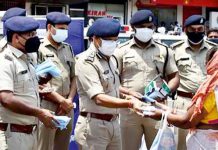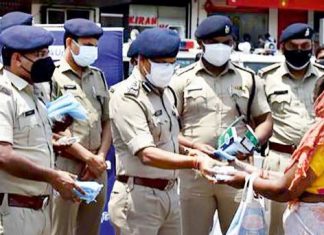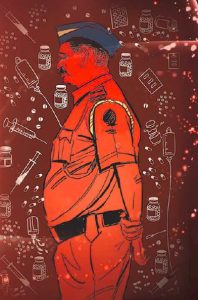 Stress is our body’s reaction to a challenge or demand. It is that feeling of emotional or physical tension arising from an event or thought, leaving us frustrated, angry or nervous. It has become such a common factor in this day and age. Its manifestation is dependent on a number of different lifestyle factors for each individual. Exam stress is common amongst school and university students, deadline stress can affect employees with targets to meet, and medical professionals can sometimes feel the strain of the intricacy and vital nature of their occupation.
Stress is our body’s reaction to a challenge or demand. It is that feeling of emotional or physical tension arising from an event or thought, leaving us frustrated, angry or nervous. It has become such a common factor in this day and age. Its manifestation is dependent on a number of different lifestyle factors for each individual. Exam stress is common amongst school and university students, deadline stress can affect employees with targets to meet, and medical professionals can sometimes feel the strain of the intricacy and vital nature of their occupation.
It is implied that the highest levels of stress is experienced by those in authority; in this case, members of the police force. The threat police officers face on a daily basis, together with administrative burden and the pressure of protecting the public, has made stress look like a common cold. Working as a police officer can be a rewarding job; however, it is also a stressful one. Although there is no way to eliminate stress and the burnout it can cause, there are ways to manage stress and prevent it from worsening.
Sources of Police Stress
Constant Exposure to People Suffering Distress and Pain
The very nature of a police officer’s job is to become deeply involved in the lives of those who have either committed a crime or been victims of a crime. On both ends of this spectrum, it is likely that the individuals involved are suffering in one way or another. Spending most of the day working with people who are experiencing high levels of distress is bound to affect one’s own emotional state. The unfortunate fact is that police officers spend an above average amount of time around pain, suffering and sadness.
Threats to an Officer’s Safety or Health
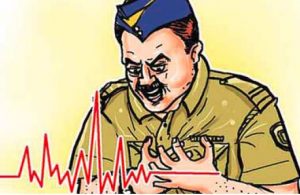 Many police officers, particularly those working in poorer neighbourhoods with higher crime rates, experience physical danger on an almost daily basis. The constant possibility of being injured or worse, is something that can weigh heavily on the mind of a police officer, causing a great deal of stress.
Many police officers, particularly those working in poorer neighbourhoods with higher crime rates, experience physical danger on an almost daily basis. The constant possibility of being injured or worse, is something that can weigh heavily on the mind of a police officer, causing a great deal of stress.
Responsibility of Protecting Citizens’ Lives
Whilst police officers may seem like bastions of strength and stability to members of the public, the responsibility of being the first line of defense is something that cannot be taken lightly. The stress of this responsibility can sometimes amount to too much for some members of the police force. Wanting to protect people is a noble goal, but shouldering that responsibility can be a source of great strain.
Controlling Emotions When Provoked
Stoicism and the ability not to rise to provocation are just two of the many emotional skills that police officers must employ on a regular basis. Often coming into contact with hostile and aggressive individuals, police officers have to repress and restrain a number of natural emotional responses that might occur in these situations. The continual effort to smother these emotional responses can be very stressful in the long run.
Inconclusive Nature of Work
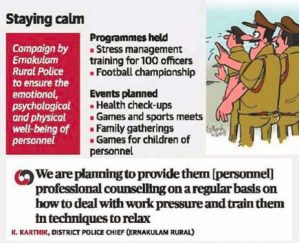 While many investigations are opened and closed in a satisfying manner, an unfortunate number of police cases are left incomplete due to insufficient evidence. This can be a cause of great disappointment to officers who have put in many working hours into a particular case; and many law enforcement officials find it difficult to move on from emotional cases.
While many investigations are opened and closed in a satisfying manner, an unfortunate number of police cases are left incomplete due to insufficient evidence. This can be a cause of great disappointment to officers who have put in many working hours into a particular case; and many law enforcement officials find it difficult to move on from emotional cases.
Unpredictable Alternative Job Switch
A large portion of police work revolves around paperwork and desk protocol, but police officers must also be alert and ready to enter into dangerous scenarios at just a moment’s notice. These switches from mundane desk work to faster paced police work never fully allow their minds to be at rest. This has been highlighted as a source of stress for police officers.
Responsibility of Owning a Firearm/Weapon
 The responsibility of owning a gun or a harmful weapon can be something that weighs heavily on the minds of active police officers. It is not uncommon for police officers experiencing high levels of stress to cite that the thought of keeping a weapon in their home pose a constant worry that their children might find and misuse it. Some officers have also remarked that they feel bouts of anxiety and stress without their firearms; having grown to depend on the security that having a weapon close by can give them.
The responsibility of owning a gun or a harmful weapon can be something that weighs heavily on the minds of active police officers. It is not uncommon for police officers experiencing high levels of stress to cite that the thought of keeping a weapon in their home pose a constant worry that their children might find and misuse it. Some officers have also remarked that they feel bouts of anxiety and stress without their firearms; having grown to depend on the security that having a weapon close by can give them.
Symptoms of Police Stress
Working in an occupation that poses such a high risk of stress-related problems can display a number of varied and differing physical symptoms as well as behavioural changes.
These symptoms include but are not limited to:
 Fatigue: A police officer’s job often involve long hours. This will naturally cause tiredness, but fatigue is also one of the classic signs of a stress-related condition. When the mind experiences something it deems to be a stressful event, the body enters into a ‘fight or flight’ response. This involves the release of adrenaline and cortisol, an increase in heart rate, plus changes in muscle tension and blood vessel constriction. Over time, repeated stressful situations can lead to adrenal exhaustion and long term fatigue.
Fatigue: A police officer’s job often involve long hours. This will naturally cause tiredness, but fatigue is also one of the classic signs of a stress-related condition. When the mind experiences something it deems to be a stressful event, the body enters into a ‘fight or flight’ response. This involves the release of adrenaline and cortisol, an increase in heart rate, plus changes in muscle tension and blood vessel constriction. Over time, repeated stressful situations can lead to adrenal exhaustion and long term fatigue.
Insomnia and Restlessness: The continuous effects of stress on the body can cause changes to sleeping patterns. As the body continually reacts to stressful situations, the  natural daily cortisol cycle can be disrupted. In a job that requires as much alertness and concentration as that of a police officer, getting sufficient rest is vital for both physical and emotional well-being. Restlessness and insomnia can develop into a vicious cycle, leaving an individual never fully rested and never able to relax and recharge.
natural daily cortisol cycle can be disrupted. In a job that requires as much alertness and concentration as that of a police officer, getting sufficient rest is vital for both physical and emotional well-being. Restlessness and insomnia can develop into a vicious cycle, leaving an individual never fully rested and never able to relax and recharge.
Decreased Sex Drive: A loss of libido and sexual desire is often linked to periods of chronic stress, impacting the private lives of police officers. Continuous exposure to stressful situations can lead to a long term decrease in sex hormone levels.
Becoming an Alcoholic: It is a cultural tendency to unwind and relax at the end of a working day with a glass of wine or beer. In stressful jobs like law enforcement, this can quickly develop into a more serious habit. Unintended dependence on alcohol can further damage an individual’s well-being.
Steps to Reduce Stress Level
Recognize the Stress: It is easy to ignore stress signs. We often try to adapt to it even though it affects us personally and professionally. But recognizing that we are experiencing stress is the first step in dealing with it. Signs can include loss of concentration, muscle tension, headaches, fatigue, sleeplessness, anxiety, irritation and loss of interest in work.
Healthy Lifestyle: Long hours at work can make police personnel too tired to exercise or eat right. Developing a healthy lifestyle is vital to be energized. Work out regularly and eat healthy instead of being a couch potato. It is also important to get at least seven to eight hours of sleep. This can combat stress as well as prevent it.
Time Off: Many police officers pick up additional shifts or work off-duty jobs to bring in additional income. While this is initially required to catch up on bills or to get some extra spending money, do realize that all work and no play makes it harder to deal with stress; eventually leading to a burnout. Take and use your time off to socialize with friends, spend time with the family, exercise or play sports.
 The Best Medicine: Many police officers become emotionally hardened by the type of work they do and things they see. Over time, you may find yourself becoming irritated and easily angered, with less patience when dealing with the public. Since laughter is often considered the best medicine, practise finding humour in daily life. It will help you deal with stress better, normalize your experiences, give you a better attitude, bond with others, see things differently and keep relationships strong.
The Best Medicine: Many police officers become emotionally hardened by the type of work they do and things they see. Over time, you may find yourself becoming irritated and easily angered, with less patience when dealing with the public. Since laughter is often considered the best medicine, practise finding humour in daily life. It will help you deal with stress better, normalize your experiences, give you a better attitude, bond with others, see things differently and keep relationships strong.
Smile more often. Read humorous interpretations of life to maintain a light-hearted point of view. Do something you love, or, develop a new hobby.
YOU ARE IMPORTANT.

